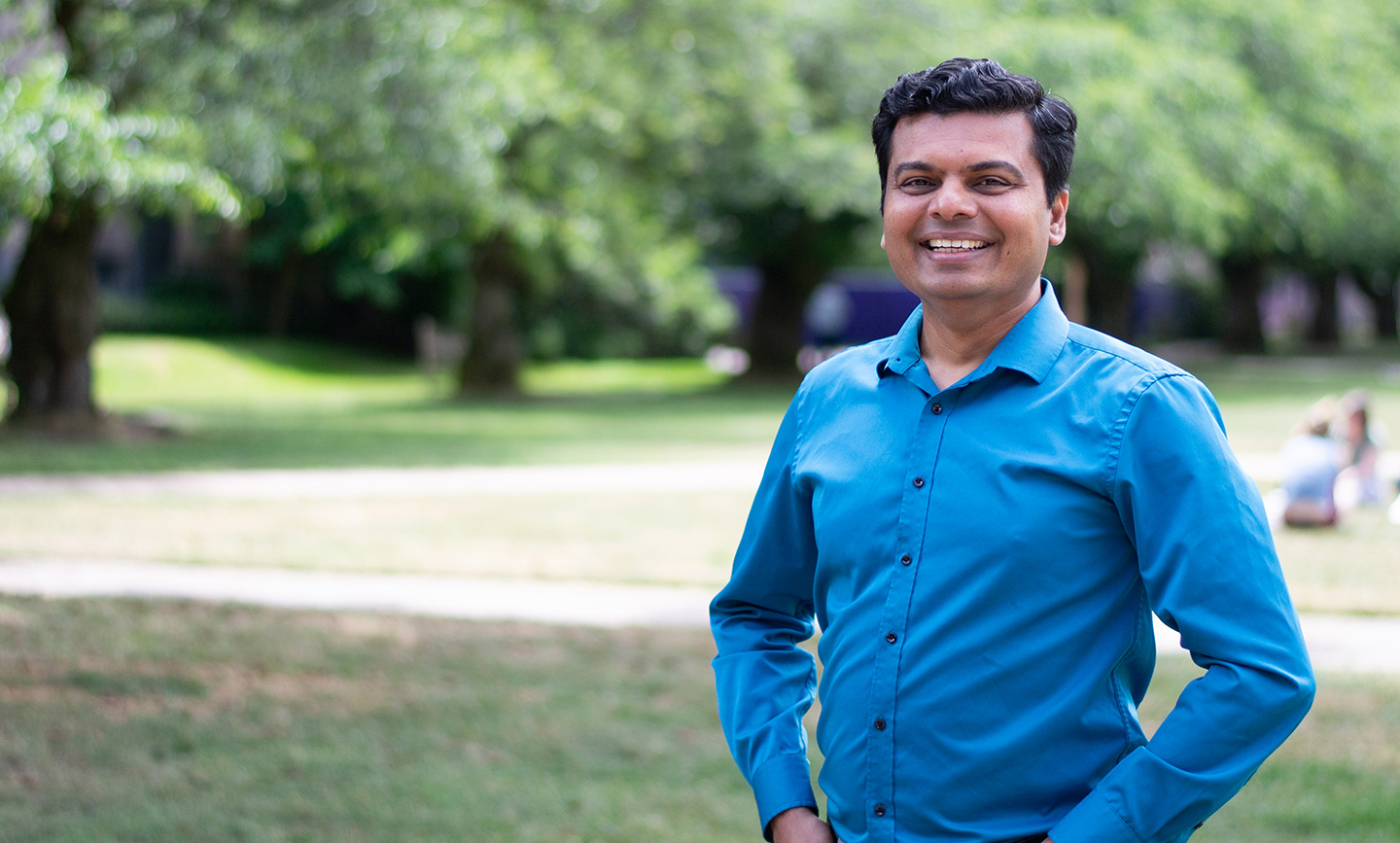Does a business such as Spotify have an obligation to be fair?
The music streaming service needs to turn a profit. If it doesn’t, the business shuts its doors, the employees lose their jobs and the shareholders have squandered their investment.
Spotify could recommend only the most popular songs or podcasts and probably satisfy much of its audience. Then, only the biggest music acts would be heard — and only those acts would be paid. Is that fair to lesser-known artists?
How would those artists develop a following? How would they become the next big thing? If Spotify recommends the lesser-known artists’ music and it doesn’t resonate with the audience, then would the listeners choose another streaming service, hurting Spotify in the long run?
These are the types of questions that intrigue Chirag Shah, a new associate professor at the University of Washington’s Information School.
Fairness, bias and privacy are taking on a profound new meaning with the exponential growth in data collection as well as the rise of automation and machine learning, said Shah, who was most recently an associate professor at Rutgers University.
In his research, Shah specializes in information retrieval and seeking, personalization and recommender systems using data science and machine learning techniques. He enjoys working in a field at the forefront of these issues.
“You get to not just work on solving the problem, but you actually get to define the problem,” Shah said. “What is this problem, right? … How do you define fairness?”
For Shah, it’s not just theoretical. He worked during a sabbatical from Rutgers last year as a visiting research scientist at Spotify in New York City. That’s where he first started thinking about fairness with music streaming.
He brought that experience back to the classroom at Rutgers. Now, one of his Ph.D. students there is doing her dissertation on fairness in online search.
When Shah was hired at the iSchool, he also obtained a position as an Amazon Scholar. He’ll be exploring topics along these lines in that role.
Shah’s work with Amazon, Spotify and other companies gives him the context and perspectives to really inform his research while at the UW, said Carole Palmer, an iSchool professor and associate dean for research.
“Whenever you have faculty members who are engaged with industry, it really brings it alive for students.”
“In the classroom, of course, students are always interested in the applied side of the kinds of information phenomena we care about in the field,” said Palmer, who led the search committee for Shah’s position. “Whenever you have faculty members who are engaged with industry, it really brings it alive for students.”
Shah has both a very strong technical background and a deep understanding of what information schools are trying to achieve, said Anind K. Dey, the iSchool’s dean. Shah’s work has a very humanistic bent to it, Dey said.
“He wasn't doing technology work for the sake of technology, but he was really thinking about, ‘OK, how can I make technical innovations to solve really hard and interesting problems that are going to impact people,’” Dey said. “That's exactly the heart of what we do.”
Shah received his master’s in computer science from the University of Massachusetts at Amherst, and his Ph.D. in information and library science from University of North Carolina at Chapel Hill. That’s where he met his wife, Lori, who was a research assistant at nearby Duke University. They have three daughters, Sophie, Zoe and Sarah; a dog named Legolas; and a guinea pig named Wilbur.
During his post-graduate work, Shah took up competitive ballroom dancing, being dragged into it like “many guys by a girl who needed a partner.” Before long, Shah found himself competing at ballroom dancing and later became a team captain. He found the repetitive drilling refreshing.
“Most of my work was sitting in front of a computer,” Shah said. “This was completely different. … It’s an activity that demands a different side of you. It was great at many levels. I picked up so many good life skills.”
At Rutgers, where he started teaching in 2010, Shah ran the InfoSeeking Lab, which brings together faculty and students for research focusing on information seeking, retrieval and behavior.
His work while at Rutgers generated funding from National Science Foundation, National Institutes of Health, and Institute of Museum and Library Services as well as Amazon, Google and Yahoo. He also consulted for the United Nations for data analytics on projects involving social and political issues, peacekeeping, climate change and energy.
At the UW, Shah is excited to explore these big-picture ideas that energize him. With the emergence of big data, high-tech companies are grappling with how to handle these issues. In many cases, these companies are looking to academia for help.
The answers will be not be based on some absolute truth, Shah said. Instead, the answers will need to balance societal and environmental factors and people’s perceptions, and they will likely be continuously redefined.
The iSchool prepares students by providing them with the tools and methodologies to meet this challenge.
“It's great for our students because they are much better suited to do these things,” Shah said. “It's great for the industry because we have students who we are trained to do the kind of things that they actually need.”
